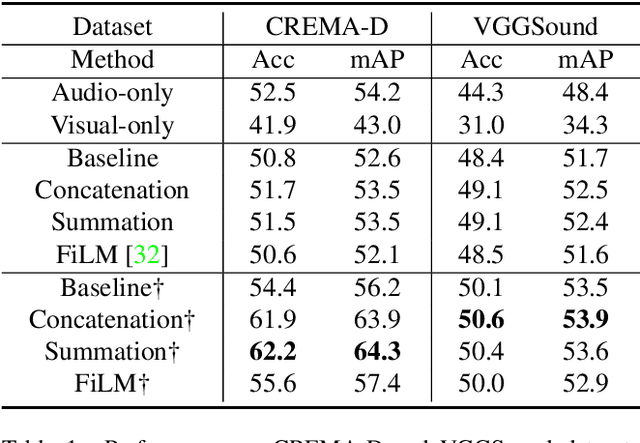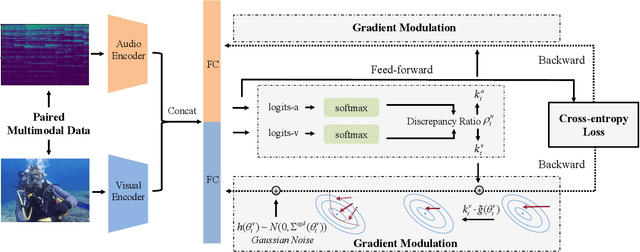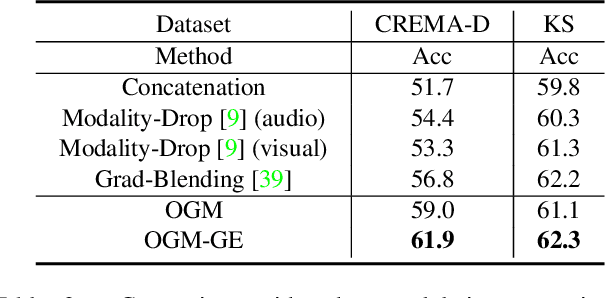Balanced Multimodal Learning via On-the-fly Gradient Modulation
Paper and Code
Mar 29, 2022



Multimodal learning helps to comprehensively understand the world, by integrating different senses. Accordingly, multiple input modalities are expected to boost model performance, but we actually find that they are not fully exploited even when the multimodal model outperforms its uni-modal counterpart. Specifically, in this paper we point out that existing multimodal discriminative models, in which uniform objective is designed for all modalities, could remain under-optimized uni-modal representations, caused by another dominated modality in some scenarios, e.g., sound in blowing wind event, vision in drawing picture event, etc. To alleviate this optimization imbalance, we propose on-the-fly gradient modulation to adaptively control the optimization of each modality, via monitoring the discrepancy of their contribution towards the learning objective. Further, an extra Gaussian noise that changes dynamically is introduced to avoid possible generalization drop caused by gradient modulation. As a result, we achieve considerable improvement over common fusion methods on different multimodal tasks, and this simple strategy can also boost existing multimodal methods, which illustrates its efficacy and versatility. The source code is available at \url{https://github.com/GeWu-Lab/OGM-GE_CVPR2022}.
 Add to Chrome
Add to Chrome Add to Firefox
Add to Firefox Add to Edge
Add to Edge